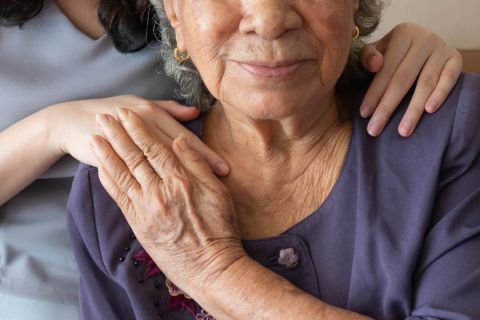
The home aides for Apna Ghar (Hindi for “my home, your home, our home”) help with everything from cooking and light housekeeping to grooming and ambulation. Most clients need in-home assistance 12 to 24 hours a day.
“We’re allowing our parents to age in place with dignity and respect,” Kazmi said.
After eight years in business, Kazmi’s company has grown to average 30 to 40 employees. Most of them are bilingual people of color with diverse cultural backgrounds, well-suited to serve clients who’ve immigrated from India, Pakistan, Bangladesh, Sri Lanka and eastern Europe and brought their religious and cultural practices with them. Awareness of the company has spread through word of mouth.
Kazmi averted the challenges of the paid caregiver shortage by reaching out to the American Red Cross in Hamtramck, a Detroit enclave with a large Bengali community. She offered to pay the $1,500 tuition for women who were interested in the certified nursing assistant and home health aide training program. That netted 10 caregivers. She also recruited refugees and women who were victims of domestic violence and paid them a competitive wage. In turn, they agreed to stay with the company for two to three years. She also kept client fees lower than competitors’, she said, to serve communities where many seniors don’t qualify for Medicaid or other government programs. Caregivers are assigned to just one family at a time.



